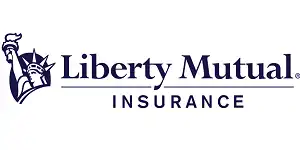Many condo owners believe that their condo association insurance master plan takes care of everything – including their condo unit and personal liability coverage if your condo at some point becomes inhabitable. After all, you pay good money in HOA fees, why wouldn’t it?
Well, think again.
Yes, your condo association might have a master plan, but everything in your own condo might not be covered by that plan. There are some asso ciations where only the condo structure and common areas are covered, and you’re responsible for the interior walls, your personal belongings, and personal liability.
Today we’re looking closely at HO6 insurance policy – which is commonly referred to as condo insurance. Let’s start out by taking a closer look at how condominium insurance coverage is handled by some of the best condo insurance companies.
Best condo insurance overview
| Insurance company | Best for | Coverage | Average premium |
|---|---|---|---|
| Lemonade | Flat fee and quick payouts | Liability, personal property, fire, reimbursed living expenses, theft | Starts at $25 per month |
| Liberty Mutual | Coverage that other companies won’t provide | Personal property, limited high-value coverage, theft, liability (including medical bills), reimbursed living | Starting at around $30 per month |
| Policygenius | Online shopping for the best rate | Depends on the insurance carrier | Depends on the insurance carrier |
| Allstate | Traditional policy with hands-on service in choosing and managing your policy | Personal property, high value property, reimbursed living expenses, liability, identity restoration, guest medical | Varies based on needs, discounts and bundling |
| USAA | Current and former members of the military and their families | Flood insurance, personal property, fire and smoke, theft, medical payments to others | Varies, based on needs, discounts and bundling |
Lemonade
Lemonade offers a few different types of insurance, including condo insurance. On top of providing insurance for owners and renters, they do something really amazing which makes them stand out big time in my mind. They take a flat fee and then make it a priority to pay claims super quickly. And then the rest of the money they donate to causes and charities that you care the most about.
As part of the process of selecting your specific policy through Lemonade, this is the time you choose a charity to support. At the end of the year, unclaimed money from you (and other customers) goes to those chosen charities. In fact, you could see up to 40% of your premium go to a cause you support.
Unfortunately, Lemonade is not available in every state, but they are rolling out new states every year. They definitely seem to have become a game-changer in the insurance world.
Read our full Lemonade Insurance review.
Liberty Mutual
As one of the largest insurance companies out there, Liberty Mutual is well-known. They’re known for providing coverage in just about any market and offering insurance policies even when others won’t. If you’re having trouble getting condo insurance, this might be the place to try.
Liberty Mutual is an insurance company that has been around for over 100 years and has consistently marketed themselves as an insurer that really cares. In fact, one of their main slogans is: “we believe insurance should ease your concerns, not cause them.”
Liberty Mutual offers a big selection of policies, including home, renters, auto, life (term and whole life), flood, business, accident, and pet insurance.
- Lots and lots of discounts
- Make a claim in minutes
- Fast quotes
- Not the best customer service reviews
- Not all coverage is available in every state
However, you need to be aware that Liberty Mutual often charges higher rates for their insurance coverage. This is because they offer coverage in high-risk situations, and that means higher premiums. If you belong to certain organizations, though, you might be able to get a discount on your coverage.
Read our full Liberty Mutual review.
Policygenius

Looking for several condo insurance quotes before you make your decision? Policygenius is an independent online broker that will take your information and offer you several quotes that meet your needs. On top of giving multiple quotes, you only have to fill out one application.
Beyond condo insurance, you can also get quotes on other types of insurance, including health, auto, and life insurance.
Go to Policygenius to start the process, and you’ll be contacted by an expert who can help you work through your options. Once you’ve choosen a , you’ll be connected to the condo insurance company of your choice to finish the process and secure your insurance.
Read our full Policygenius review.
Allstate

If you’re looking for the complete experience, Allstate might be the right choice for you. This is one of the largest and most well-known companies, providing condo insurance to a wide variety of customers.
Allstate’s network of agents can help you get in-person help locally. They can help you decipher your condo association’s master plan and figure out what you need when it comes to personal condo insurance.
USAA

While USAA started out with primarily auto insurance, they’ve since branched out and it’s possible to get condo insurance and other types of insurance. One of the big standouts with USAA is the fact that flood insurance is often included with and , so you don’t have to purchase a separate flood policy.
However, it’s important to note that you have to meet the requirements in order to purchase insurance through USAA. You must have served in the military, or be a close family member of someone who did. Once you have that access, you can get banking services and credit cards, as well as insurance, with USAA.
What is condo insurance?
Condo insurance is a specific type of insurance designed to protect your unit and belongings in the event of damage. Your personal condo insurance is separate from the coverage that your condo association might have.
Your master condo insurance plan might cover the structure of your condo unit, such as exterior walls and floors, but it might not cover interior walls or built-in structures, like bookcases and closets. The master condo insurance might also cover shared areas, such as common rooms and the boiler, but for your own personal unit, you’re likely on your own.
Getting the right personal condo insurance coverage can be important in the event that disaster strikes – or you experience vandalism or theft. Additionally, your personal liability coverage can cover costs related to someone being hurt in your unit.
Why you need condo insurance
Unexpected disasters
If something happens, such as a fire, a burst pipe, or some other issue, you’d want to be covered for the cost of rebuilding your unit or for the damage caused to your personal items. The condo association’s master plan might cover the cost of the outside structure and common areas, but everything happening inside your unit might be on you.
Insurance can make replacement more affordable to you since the company covers the related costs as long as you’ve paid your premium.
Liability
What happens if your dog bites a guest, or if they’re injured in some other way? Check the condo association’s plan to see if common areas are covered, but it might be that you’re responsible for your own guests, even in common areas.
With liability coverage, you’re covered up to a certain amount if a guest decides to sue you for damages related to their injury. On top of that, if you have guest medical coverage, you can help pay for related costs when they are seen for their injuries.
You might be required to have it
Finally, you might be required to purchase your own policy. Your condo association might require you to get personal coverage. Additionally, if you’re buying a condo, your lender might demand that you have proof of condo insurance before they will issue you a mortgage.
How much condo insurance do I really need?
The amount of coverage you need depends on a number of factors, including the value of your condo, the size of your mortgage and how much personal property you have. Additionally, you might need to figure out the amount of liability coverage you want. If you’re sued for $300,000, you don’t want to find out that your policy only covers $100,000 of liability.
Carefully consider your needs, starting with the value of your condo and its contents. Speak with the condo association to see if they have any recommendations. You can also speak with a local agent to get a feel for what’s normal for your area.
The important thing is to get enough coverage to take care of the necessities, while still having a premium that fits within your budget.
Read more: Requirements To Get An FHA Loan For A Condo
What does condo insurance cover?
It’s important to note that condo insurance coverage is different, so read the documents carefully to make sure you’re covered.
Some of the common property coverage includes:
- Damage to the structure and interior caused by natural disasters, such as storms and fires (but not usually flooding).
- Damage to personal property by natural disasters.
- Water damage from home components (burst pipes or water heater).
- Property theft.
- Vandalism.
- Reimbursement of living expenses.
Check your coverage to see if there are limits on high-value property, such as jewelry and fine art. You might need to buy additional coverage for such items.
In addition to property coverage, your condo insurance might include liability coverage, including:
- Medical bills for those injured inside your home (or on the condo property).
- Injuries that your pets cause.
- Lawsuit damages brought as a result of injuries on your property.
What doesn’t condo insurance cover?
Basically, if it’s not specifically listed in your policy documents, there’s a good chance it’s not covered. Double-check and buy additional insurance if needed.
Here are some examples of what might not be covered by your condo insurance policy:
- Possessions lost, rather than stolen.
- Damage you’ve done to your property.
- Damage your pet has done to your property.
- High-value items that exceed the dollar amount of coverage specified by the policy.
- Flood damage (USAA is an exception and provides this coverage).
- Earthquake damage.
- Pest damage (rats, termites, etc.).
What to look for in condo insurance
As you compare different condo insurance policies, it’s important to understand what you’re getting. You want the best possible deal on insurance that will also provide you with the protection you need.
Here are some of the main things to keep in mind when you are trying to determine condo insurance cost.
Deductible
Every condo insurance policy comes with a deductible. This is the out of pocket expense that you pay before the policy’s coverage kicks in. So, if a $700 iPad is stolen from your home and your deductible is $500, the insurance company will only reimburse you $200, since you have to meet the deductible first.
The higher your deductible, the lower your homeowners insurance premium — the more you’re willing to pay out of your pocket upfront, the less the home insurance company has to pay. Balance what you can afford to pay as a deductible (check your emergency fund) with the premium you can afford.
Discounts
Depending on the insurance company, you might be able to get discounts on your policy based on some of the features of your condo. If you have fire extinguishers, a sprinkler system, a burglar alarm, and other features, you might be able to get a lower cost on your premium.
On top of that, some companies offer bundling discounts if you get different types of policies from them. So, if you get an auto policy and/or a life insurance policy from the same company as you get your condo coverage, you could get a discount on all your insurance needs.
Riders
Don’t forget to consider policy riders. These offer additional coverage that isn’t included in the base policy. For example, if you have a home office in your condo, you might need a rider to cover the office equipment. Or, if you have high-value items, you might need a rider to cover the property above the dollar coverage limit.
Finally, if you live in areas prone to events like flooding, earthquakes, and tornadoes, you might need riders to cover the damage caused by these disasters.
Replacement cost vs. actual value
When comparing coverage, you also want to make sure you’re being covered based on what’s likely to work for you. There are two main types of reimbursement:
- Replacement cost – This is the cost to replace the item at current prices.
- Actual value – This is the actual value of the item. If you bought something several years ago and it’s depreciated in value, you’re only offered its current value. So if the laptop you bought for $1,500 is stolen, you might only receive the $500 it’s worth today.
Actual value insurance is cheaper because the insurance company pays out less. However, if you want better coverage, it might be worth paying the replacement value cost for a little more.
How condo insurance rates are determined
As with all insurance, condo coverage premiums are based on risk. A number of factors are considered when determining risk. The higher the perceived risk, the higher your insurance premiums.
Here are some of the things that are considered when you’re given a condo insurance quote:
- Location and age of your property.
- Value of your personal property.
- Policy riders.
- Available discounts.
- The amount of liability coverage you want.
- Whether you choose replacement cost or actual value.
- Your past history of insurance claims.
- Whether you have pets.
- Other people who live in the condo.
In some states, insurance companies are also allowed to check your credit and base your premiums, in part, on your credit score.
Where to find condo insurance
You can get condo insurance just about anywhere that offers a homeowners insurance policy. It’s a good idea to compare various quotes and get an idea of what’s available before you make a decision. You could save hundreds of dollars a year, based entirely on comparing quotes from different companies.
Start with our list
The five companies on our list represent some of the best options for condo insurance coverage. They are good places to start for solid offerings and service.
Look for a local insurance broker
An insurance broker is someone who’s authorized to work with multiple insurance companies. An agent, on the other hand, is usually limited to offering policies from the one company they work for. A broker can help you evaluate your needs and examine offerings from several insurers.
You can also use a broker in the future to help you continue getting the best rates. Plus, a broker usually offers personalized service, seeing you through all the steps of getting and maintaining your coverage.
Get a quote online
An online insurance quote can be one way to see multiple options with your condo insurance. In fact, if you bring an online quote to a local broker or agent, you might be able to get a lower price.
One of the easiest aggregators – and the one that made my list above – is Policygenius. Practically any insurance product you can think of, you can compare quotes for on Policygenius.
Their application process takes just a few minutes, no matter the insurance you’re comparing. And, while you will have to enter a good amount of personal information, you’ll get personalized quotes from dozens of companies.
Summary
If you live in a condo, you need your own personal coverage in addition to the master plan offered by the association. It’s a little complicated, but with a little research and help, you should be able to find a condo insurance plan from a company that has your back.
